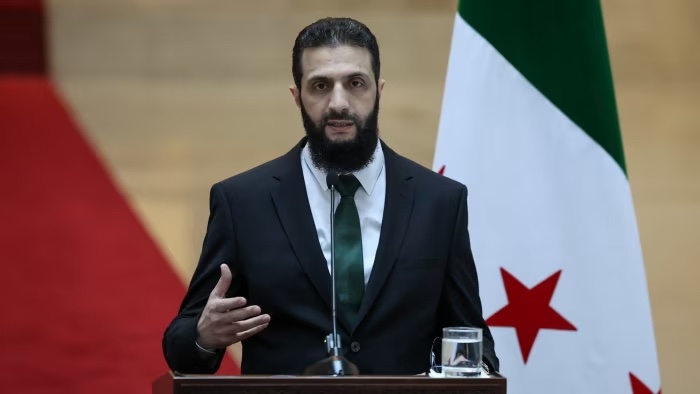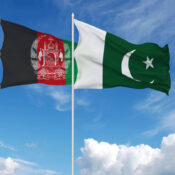
Syria’s new leader has said that the process of holding elections may require up to four years
The de facto leader of Syria has indicated that the process of conducting elections in the country could take up to four years.
In his inaugural electoral timetable commentary, de facto leader Ahmed al-Sharaa disclosed that Syria’s elections could last up to four years.
Ahmed al-Sharaa, Syria’s de facto leader, has disclosed that the process of conducting elections in the country could take up to four years. This is his first public statement regarding an electoral timeline since the removal of Bashar al-Assad earlier this month.
Sharaa stated in excerpts of an interview with Saudi-owned broadcaster Al Arabiya, which is scheduled to air on Sunday, that the process of drafting a new constitution could take as long as three years. He also mentioned that it would take approximately one year for Syrians to observe substantial changes under the new administration.
Sharaa, the leader of the Hayat Tahrir al-Sham (HTS) group that spearheaded the campaign to overthrow Assad on December 8, announced that HTS would be disbanded at an imminent national dialogue conference. His comments coincide with Syria’s new government’s efforts to disassociate itself from its Islamist militancy origins and to assure neighboring nations of its dedication to moderation.
The abrupt campaign to remove Assad terminated a brutal 13-year civil war; however, it left Syria at a juncture. The multi-ethnic nation, which was previously governed by the Assad family’s authoritarianism for decades, is currently grappling with the challenge of reconciling competing interests from regional and global actors such as Turkey and Russia.
The collapse of Assad’s regime has been broadly welcomed by Western powers. Nevertheless, there are still apprehensions regarding the potential of Syria’s new leadership to adopt democratic reforms or to prioritize strict Islamic governance. Previously affiliated with organizations such as al-Qaeda and Islamic State, HTS has since repudiated these affiliations and has established itself as a moderate force. It has consistently pledged to safeguard minority groups and has issued warnings against the instigation of sectarian conflict.
The Assad regime’s staunch ally during the civil war, Russia, was acknowledged by Sharaa in the Al Arabiya interview as having shared strategic interests with Syria. Russia maintains military bases in Syria, and Sharaa reiterated that these arrangements would be subject to negotiation. Sergei Lavrov, the Russian Foreign Minister, verified this, asserting that the discussions would encompass the operations of the bases and broader collaboration with the new government.
In an interview with Russian news agency RIA published on Sunday, he stated, “It is not only a matter of maintaining our bases or strongholds, but also of the conditions of their operation, maintenance, and provision, as well as interaction with the local side.”
Sharaa also expressed optimism that the sanctions on Syria would be lifted by the incoming administration of U.S. President-elect Donald Trump. Senior U.S. diplomats who recently visited Damascus characterized Sharaa as pragmatic, indicating a shift in relations. The United States has also lifted a $10 million bounty on his head, a gesture that reflects Washington’s changing perspective on Syria’s new leadership.
The government’s capacity to foster unity among its diverse population, manage international alliances, and implement meaningful reforms will be critical in determining the country’s future as Syria embarks on this uncertain journey.
All Categories
Tags
+13162306000
zoneyetu@yahoo.com


